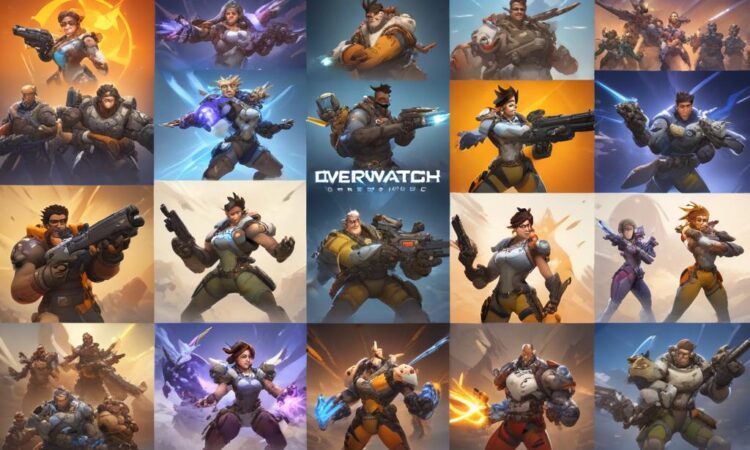The Controversial Changes in Overwatch 2: Discussing the recent updates and changes in Overwatch 2 that have generated controversy among players and esports professionals, analyzing their impact on competitive play.
Overwatch 2, the highly anticipated sequel to Blizzard’s popular hero shooter, has been met with a mixed reception since its release. While the game boasts a revamped gameplay experience, including new heroes, maps, and modes, it has also introduced several changes that have sparked heated debate within the Overwatch community. From hero reworks to the controversial shift to a 5v5 format, these alterations have impacted the game’s competitive landscape in significant ways, raising questions about the future of Overwatch esports and the overall balance of the game.
The 5v5 Format: A Shift in Dynamics
One of the most significant changes introduced in Overwatch 2 is the switch to a 5v5 format, eliminating one tank from each team. This change has fundamentally altered the game’s dynamics, reducing the importance of tank heroes while simultaneously empowering DPS and support roles. The impact of this shift is felt across all levels of play, from casual matches to professional tournaments.
Proponents of the 5v5 format argue that it promotes faster-paced gameplay, reduces the emphasis on tank-heavy compositions, and allows for more individual hero expression. They also point to the increased opportunities for DPS and support heroes to shine, leading to a more diverse and engaging meta.
However, critics of the 5v5 format express concerns about its impact on competitive balance. They argue that the removal of a tank role has led to a decrease in team coordination and an overemphasis on individual skill, potentially diminishing the value of strategic play. Additionally, they worry that the shift has created an imbalance in the game, favoring certain hero archetypes while making others less viable.
Hero Reworks and Balancing Issues
Along with the 5v5 format, Overwatch 2 has introduced significant reworks to several existing heroes, both in terms of their abilities and their overall design. While some of these reworks have been met with positive reception, others have stirred controversy, sparking debates about the overall balance of the game.
For example, the rework of Bastion, once a formidable and feared hero, has drastically altered his gameplay, significantly reducing his effectiveness in competitive play. The rework has been met with mixed reviews, with some players appreciating the change while others lament the loss of a previously powerful hero.
Similar controversies have arisen with the reworks of other heroes, such as Orisa and Doomfist. While the developers have attempted to balance these changes, the ongoing feedback from the community suggests that more adjustments are needed to ensure a fair and competitive environment.
The Impact on Overwatch Esports
The changes introduced in Overwatch 2 have had a significant impact on the Overwatch esports scene. The shift to 5v5 has resulted in a new meta that requires teams to adapt their strategies and compositions. This has led to a surge in experimentation and a focus on individual skill, as players seek to maximize their potential within the new format.
However, the impact on the competitive landscape goes beyond just meta adjustments. The changes in hero balance and gameplay have also impacted the overall viewing experience for esports fans. With certain heroes becoming significantly more dominant, the meta can become predictable and less exciting, leading to a decrease in viewership.
The future of Overwatch esports remains uncertain as the game continues to evolve. The developers are committed to making adjustments based on community feedback, but the long-term impact of the changes introduced in Overwatch 2 remains to be seen.
Conclusion: A Time of Transition
Overwatch 2 is undoubtedly a game in transition. The changes introduced in the sequel have sparked controversy and created challenges for the competitive landscape. While the 5v5 format and hero reworks have resulted in a new and exciting gameplay experience, they have also raised concerns about balance and the overall health of the game.
The Overwatch community, including players and esports professionals, is actively engaged in a dialogue with the developers, providing feedback and offering suggestions for improvements. The future of Overwatch 2 remains to be seen, but the game’s success will ultimately depend on its ability to address these controversies and create a balanced and enjoyable experience for all players.

